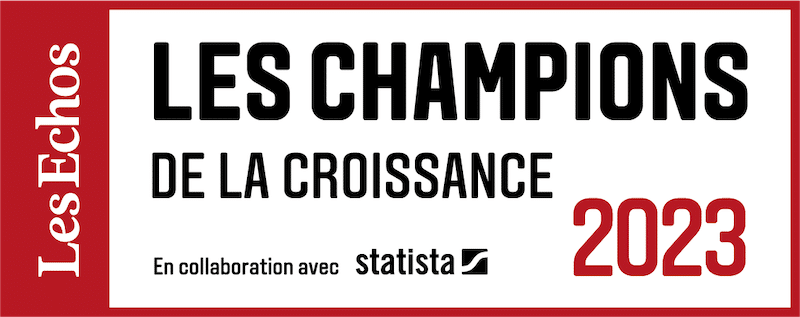HDS Hosting: why is Azure a key partner for GHTs?
18/12/2020
5min
Tables des matières
Health data are not personal data like any other. The legislator has taken care to frame the rules relating to their hosting. HDS hosting, i.e. having received certification to be able to host health data, has been mandatory in any information system related to the medical sector since 2018.
Here's an article to find out more about health data and the RGPD.
At the same time, under the impetus of the law on modernization of the healthcare system, hospitals are tending to form GHTs (groupements hospitaliers de territoire) in order to pool their resources and place the patient at the heart of the organization of care. The digital transformation that accompanies these groupings can be complex, particularly in terms of unifying information systems and their architecture.
cloud computing provides a solution for infrastructures; its benefits are even amplified by the use of remote applications. But healthcare information also brings with it heightened data protection constraints. Projects to migration to services Cloud require specialized business expertise.
As the holder of the Microsoft services contract for the CAIH (hospital IT purchasing center), Blue Soft Empower has developed solid expertise in Azure projects for major healthcare players. A recent example of this is the migration to Cloud of the establishments that make up the Grand-Paris Nord Est GHT, which is now opening up new collaborative opportunities for the group's administrative and medical services.
Why certification? What the HDS decree says
The HDS decree, published on February 28, 2018, amends the Public Health Code to regulate the processing of health data. Since March 31, 2018, filing applications for approval is no longer possible. Applicants for hosting personal health data must now follow an "HDS certification" procedure, which should ensure the reliability of the hosting.
This transition aims to further strengthen data security, in a context of increasing risks: not a month goes by without hospitals being subject to cyberattacks. The consequences are sometimes heavy, as in the case of the Rouen University Hospital, whose 6,000 computers remained silent for over a week in 2019.
The obligation applies to any entity that offers a hosting service for data collected in the course of prevention, diagnosis, care or social and medico-social monitoring activities. The providers of GHTs are of course included in this field of application.
Cloud and HDS, the new imponderables of GHTs
The GHT GPNE is a textbook case of the migration of hospital infrastructures to Cloud. The convergence of the infrastructures of the three establishments it groups together (the CHI Robert Ballanger in Aulnay-sous-Bois, the Le Raincy-Montfermeil intercommunal hospital group and the CHI André Grégoire in Montreuil) is at the heart of the GHT strategy.
A single, cross-functional IT department was created to facilitate the exchange of administrative and medical data. This development required the use of a robust and secure Cloud , which obviously offers HDS hosting.
Interested? Find out how to make your migration a success.
Accessible and shared applications in a secure environment
The GHT GPNE chose Azure and Office 365 because of their openness to existing platforms and applications in its environment. The migration was carried out relatively quickly and the administrative departments were the first to adopt new habits, particularly with Teams, but also with applications specific to the medical sector, such as MSSanté secure messaging. This step proved essential at the time of the lockdown and allowed the staff to telework comfortably.
Blue Soft EmpowerThe team that accompanied the change was able to put in place agile, rapid and effective strategies to ensure continuity of service. The health crisis also revealed the need to be able to adapt the platform's resources to the GHT's activity and to user demand.
On the same subject, discover the success story of the Vaucluse GHT.
You may also be interested in our article on Innovating and building the hospital of tomorrow or download our white paper on building tomorrow's hospital with Microsoft solutions.
The Cloud Azure is particularly well suited to healthcare facilities
The Cloud Azure solves all of the issues that healthcare IT can face. Hosting medical data and applications requires the HDS standard, and Microsoft has obtained this certification as of 2018 for Azure. The HDS decree has also given rise to a number of office automation constraints that the solution meets perfectly.
In addition, Microsoft has granted specific rates to healthcare institutions as part of the CAIH agreement, which makes it a very competitive platform, in addition to being the most natural technically for those who already work with Microsoft or Office environments.
The need to use an HDS-certified hosting provider is not just a legal constraint. The sensitivity of medical data must be considered from the point of view of the protection of personal life as well as the solidity of the healthcare system, which, like other strategic sectors, relies on the increasing digitization of its flows. As a major public health issue, patient care is now largely dependent on IT. It is essential to take these issues into account when transforming an information system. This is why we Blue Soft Empower has specialized in this sector and is today one of the recognized providers of the CAIH. Our subsidiary has translated this expertise into a guide for GHTs, making it possible to grasp all the challenges of Cloud for healthcare institutions.
HDS Hosting: why is Azure a key partner for GHTs?
18/12/2020
5min
Tables des matières
Health data are not personal data like any other. The legislator has taken care to frame the rules relating to their hosting. HDS hosting, i.e. having received certification to be able to host health data, has been mandatory in any information system related to the medical sector since 2018.
Here's an article to find out more about health data and the RGPD.
At the same time, under the impetus of the law on modernization of the healthcare system, hospitals are tending to form GHTs (groupements hospitaliers de territoire) in order to pool their resources and place the patient at the heart of the organization of care. The digital transformation that accompanies these groupings can be complex, particularly in terms of unifying information systems and their architecture.
cloud computing provides a solution for infrastructures; its benefits are even amplified by the use of remote applications. But healthcare information also brings with it heightened data protection constraints. Projects to migration to services Cloud require specialized business expertise.
As the holder of the Microsoft services contract for the CAIH (hospital IT purchasing center), Blue Soft Empower has developed solid expertise in Azure projects for major healthcare players. A recent example of this is the migration to Cloud of the establishments that make up the Grand-Paris Nord Est GHT, which is now opening up new collaborative opportunities for the group's administrative and medical services.
Why certification? What the HDS decree says
The HDS decree, published on February 28, 2018, amends the Public Health Code to regulate the processing of health data. Since March 31, 2018, filing applications for approval is no longer possible. Applicants for hosting personal health data must now follow an "HDS certification" procedure, which should ensure the reliability of the hosting.
This transition aims to further strengthen data security, in a context of increasing risks: not a month goes by without hospitals being subject to cyberattacks. The consequences are sometimes heavy, as in the case of the Rouen University Hospital, whose 6,000 computers remained silent for over a week in 2019.
The obligation applies to any entity that offers a hosting service for data collected in the course of prevention, diagnosis, care or social and medico-social monitoring activities. The providers of GHTs are of course included in this field of application.
Cloud and HDS, the new imponderables of GHTs
The GHT GPNE is a textbook case of the migration of hospital infrastructures to Cloud. The convergence of the infrastructures of the three establishments it groups together (the CHI Robert Ballanger in Aulnay-sous-Bois, the Le Raincy-Montfermeil intercommunal hospital group and the CHI André Grégoire in Montreuil) is at the heart of the GHT strategy.
A single, cross-functional IT department was created to facilitate the exchange of administrative and medical data. This development required the use of a robust and secure Cloud , which obviously offers HDS hosting.
Interested? Find out how to make your migration a success.
Accessible and shared applications in a secure environment
The GHT GPNE chose Azure and Office 365 because of their openness to existing platforms and applications in its environment. The migration was carried out relatively quickly and the administrative departments were the first to adopt new habits, particularly with Teams, but also with applications specific to the medical sector, such as MSSanté secure messaging. This step proved essential at the time of the lockdown and allowed the staff to telework comfortably.
Blue Soft EmpowerThe team that accompanied the change was able to put in place agile, rapid and effective strategies to ensure continuity of service. The health crisis also revealed the need to be able to adapt the platform's resources to the GHT's activity and to user demand.
On the same subject, discover the success story of the Vaucluse GHT.
You may also be interested in our article on Innovating and building the hospital of tomorrow or download our white paper on building tomorrow's hospital with Microsoft solutions.
The Cloud Azure is particularly well suited to healthcare facilities
The Cloud Azure solves all of the issues that healthcare IT can face. Hosting medical data and applications requires the HDS standard, and Microsoft has obtained this certification as of 2018 for Azure. The HDS decree has also given rise to a number of office automation constraints that the solution meets perfectly.
In addition, Microsoft has granted specific rates to healthcare institutions as part of the CAIH agreement, which makes it a very competitive platform, in addition to being the most natural technically for those who already work with Microsoft or Office environments.
The need to use an HDS-certified hosting provider is not just a legal constraint. The sensitivity of medical data must be considered from the point of view of the protection of personal life as well as the solidity of the healthcare system, which, like other strategic sectors, relies on the increasing digitization of its flows. As a major public health issue, patient care is now largely dependent on IT. It is essential to take these issues into account when transforming an information system. This is why we Blue Soft Empower has specialized in this sector and is today one of the recognized providers of the CAIH. Our subsidiary has translated this expertise into a guide for GHTs, making it possible to grasp all the challenges of Cloud for healthcare institutions.




